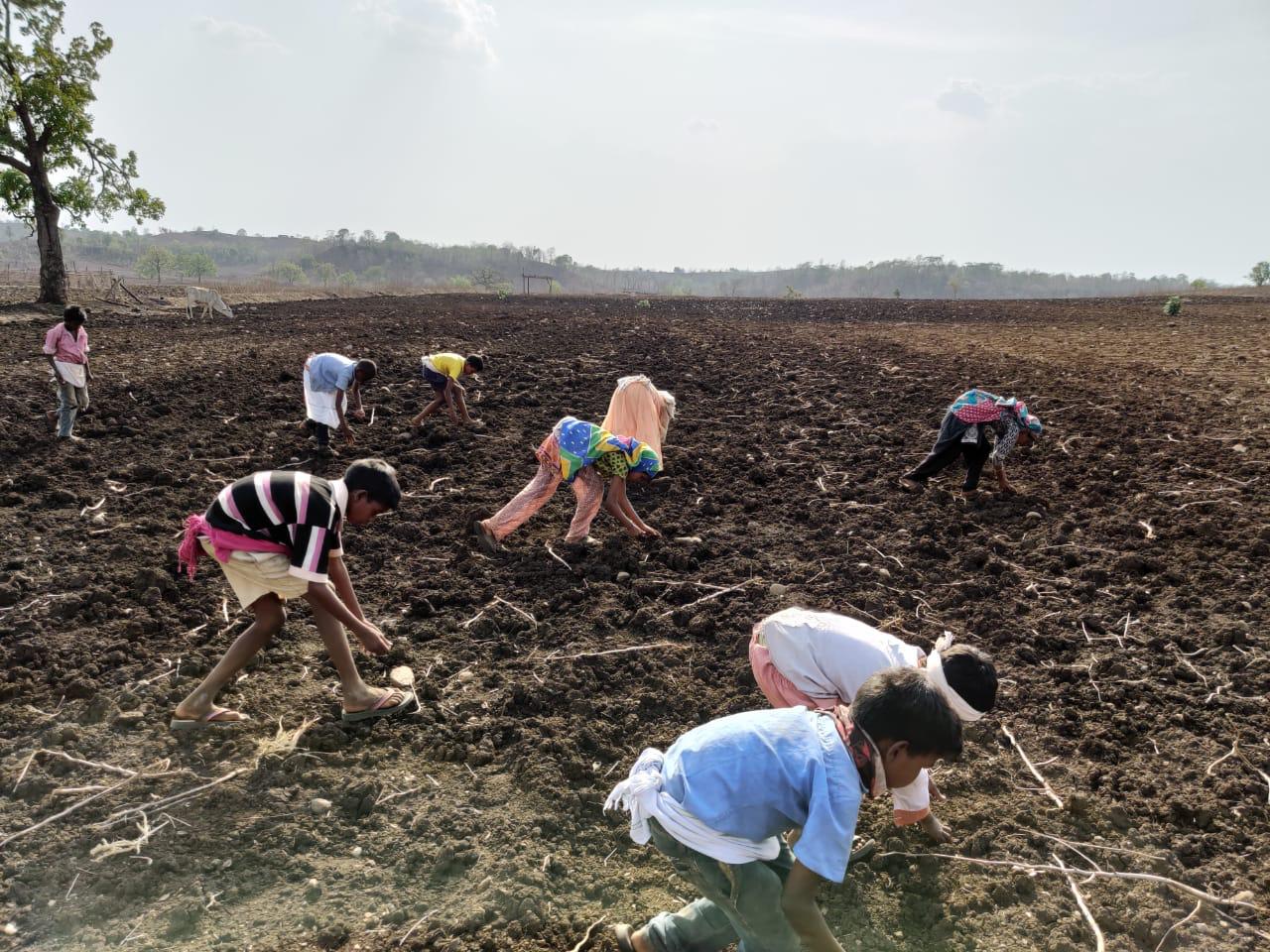The number of child workers in India has dropped for the first time in 20 years (4.3 million as compared to 12.6 million child workers in 2001). However, UNICEF and several reputed NGOs dispute these figures, estimating that even now, there are about 28 to 60 million child workers.
Notwithstanding the difficulty of establishing the exact number of child workers, child labour in agriculture, in particular, on cotton farms, remains a serious problem with a quarter of the total workforce still consisting of children below 14 years of age. Children plough, weed, sow, remove pests, spray toxic pesticides or are present in the fields during the spraying of toxic pesticides, and cross-pollinate plants by hand (in the production of hybrid cotton). Furthermore, during harvest, children manually harvest cotton, fill and carry sacks and load them onto trucks.
Many of the chemicals children are exposed to are dangerous nerve agents, designed to impede the nervous system in pests. They can affect children causing tremors, nausea, weakness, and in serious cases paralysis. Exhaustion, heat stroke and malnutrition are common amongst child labourers. All seriously impact on children’s physical and psychological development and can prevent them from completing their education.
The major drivers of child labour in the cotton industry are poverty, the ensuing debts of parents and the labour-intensive work, which drives the sector’s need for a low-cost workforce (motivating the hiring of children). Additionally, children’s small and nimble fingers are deemed perfect for jobs like cross-pollinating and picking – in particular girls. Laws and regulations that are meant to protect children from bonded labour or working in hazardous conditions are not always effectively and correctly implemented.
Better Cotton Initiative, a global effort that promotes sustainable cotton farming standards and practices across 21 countries, engaged Ambuja Cement Foundation as one its implementation partners in India, a large cotton producing nation to propagate sustainable cotton farming. ACF currently works with 1.21 lakh farmers to uphold BCI’s well defined principles and criteria, which not only prohibit the use of child labour on farms, but make global cotton production sustainable – The Better Cotton Standard System is a holistic approach to sustainable cotton production which covers all three pillars of sustainability: environmental, social and economic.
One of BCI’s key principles is ‘Decent Work’, defined by the International Labour Organization (ILO) as work that provides opportunities for people to work productively in conditions of freedom, equity, security and human dignity. Decent Work is central to achieving a BCI licence and child labour features prominently as one among a number of critical Decent Work topics, including gender equality, equal pay, health and safety, forced labour and non-discrimination. By engaging with farmers through ‘Decent Work’ training sessions, conducted on an ongoing basis, we are helping farmers see the bigger picture – and understand the hazards and long term health impacts of the use of pesticides and heavy, hazardous tasks on children’s health and wellbeing.
Eradicating child labour requires concerted efforts by all the entities including governments, public and private companies, and even consumers. With the CSR agenda in India stronger than ever before, corporates have a responsibility to track the supply chains of the cotton in their products to ensure products bought and sold in the country are not indirectly supporting the use of forced or child labour and must demonstrate what they are doing to address child labour in the cotton industry.
The corporate sector needs to closely work with their suppliers to improve standards, so children are not being harmed, and seek alternatives where sources refuse to be compliant. Companies can also play an active role in advocating and educating against child labour in target communities. Consumers too have a pivotal role to play, by only purchasing cotton products made from ethically certified cotton suppliers and rejecting products from companies that do not demonstrate otherwise.
Pearl Tiwari is the Director of Ambuja Cement Foundation, the CSR wing of Ambuja Cements Limited. In a professional career spanning over 30 years, Pearl has been associated with the not-for-profit, educational and corporate sectors. Pearl joined Ambuja in 2000 and ever since has been at the helm of nurturing the Ambuja Cement Foundation that has expanded from a fledgeling team to nearly 400 development professionals, with a pan-India presence active in 21 locations across 11 states.
Views of the author are personal and do not necessarily represent the website’s views.


